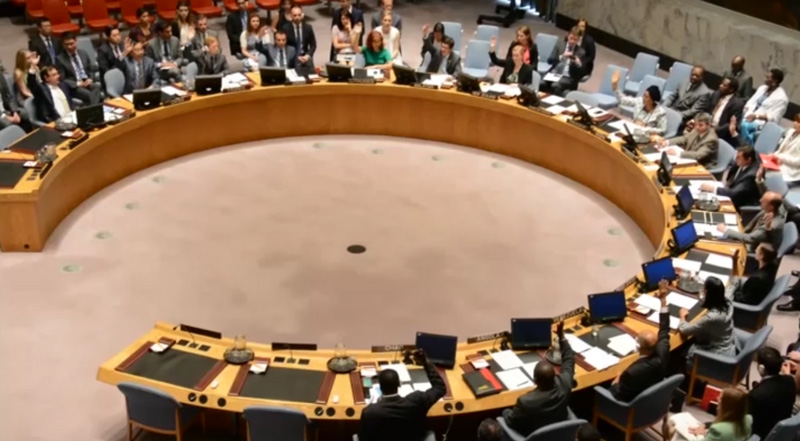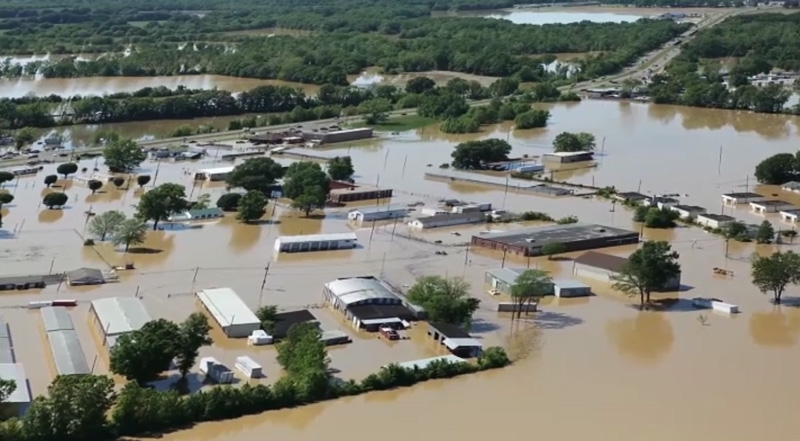Presentació
Presentation
Introduction
In late 2017, UPF Rector Jaume Casals announced the university’s intention to promote a multi-, inter- and transdisciplinary initiative in the field of Planetary Wellbeing. The aim would be to equip the institution with a vision committed to tackling the major challenges facing global society in the 21st century and to generate transformative energies to reshape both the university and its urban environment, i.e. the city of Barcelona.
The primary goal is to increase knowledge and understanding of the set of complex, interrelated and systemic issues affecting the wellbeing of humans, animals and the planet itself
The project is being coordinated by the lecturers Josep Lluís Martí, vice-rector in charge of innovation projects, and Josep Maria Antó, scientific director of ISGlobal. The primary goal is to increase knowledge and understanding of the set of complex, interrelated and systemic issues affecting the wellbeing of humans, animals and the planet itself, as a global ecosystem, and to identify innovative and integrated interdisciplinary solutions for them.
The Planetary Wellbeing project draws its inspiration from other international initiatives, such as the Planetary Health Alliance, of which ISGlobal (a UPF-affiliated institute) is an active member. The project also reflects the United Nations Sustainable Development Goals (SDGs), an initiative aimed at achieving global improvements in 17 areas including, amongst others: poverty, hunger, health, education, climate change, gender equality, water, sanitation, energy, urban development, the environment and social justice.

UPF’s Planetary Wellbeing project is based on four premises:
-
Human health and wellbeing, animal welfare and civilisation itself depend on the planet’s natural systems.
-
The challenges and threats we face today are complex, changing and increasingly unpredictable, and the need to address them is more urgent than ever.
-
We need to make a qualitative leap in our knowledge and understanding of the issues, as well as in global governance and collective decision-making, in order to find and implement effective solutions. This leap can only be made by embracing a new approach that enables us to work integratively, drawing on the various disciplines of our current knowledge.
-
These solutions exist; finding them is not an impossible challenge.
Based on this vision, the university has made a firm commitment to contribute to this planetary goal by blurring the boundaries between disciplines, departments and units. The initiative aims to create internal spaces for scientific and teaching cooperation in the university’s various fields of work, to encourage new research aimed at advancing some of the main lines of Planetary Wellbeing, and to provide new students and researchers with more inter- and transdisciplinary training.
The project proposes to blur the boundaries between disciplines, departments and units, and to create internal spaces for scientific and teaching cooperation in the university’s various fields of work
For all these reasons, it is necessary to ensure that both the university’s undergraduate and postgraduate students and the new generations of researchers have access to a painstaking and plural body of knowledge about the major planetary challenges and the possible responses and solutions. To achieve this goal, the Planetary Wellbeing project has already begun to work with a lead team of researchers from the university’s eight departments, whose work is related to the concept of Planetary Wellbeing and who have been tasked with developing the initiative.
The project also proposes that UPF become a global player and a leading advocate of the idea of Planetary Wellbeing. The university is thus carving out new spaces for cooperation with other universities and international organizations in order to advance together at the frontiers of knowledge, facilitating the dissemination of that knowledge and the coordinated action needed to harness it to enhance Planetary Wellbeing.

Why Planetary Wellbeing?
The project grew out of UPF Rector Jaume Casals’s initiative to identify an issue that UPF could use to define itself over the next ten years. In addition to earning the university recognition for its performance and indicators, the issue had to offer content with which the university could be identified.
First and foremost, the concept of Planetary Wellbeing aims to generate new knowledge to respond to current and future global challenges based on a very clear premise: planetary and human health are closely interrelated.
In the last century, humanity has made great strides in improving societal wellbeing. However, this progress has come at a cost: an unprecedented rate of exploitation of natural resources and unacceptable inequalities in health and wealth
History bears this out. In the last century, humanity has made great progress on societal wellbeing, from increased life expectancy to reduced poverty and child mortality rates on a global scale. However, this qualitative leap has come at the cost of an unprecedented rate of exploitation of natural resources, as witnessed, for example, by the increased carbon dioxide emissions, ocean acidification, deforestation or water consumption. Furthermore, this exploitation and the use of these resources have not always been beneficial for the wellbeing of the populations from which they have been expropriated. It is thus also necessary to address the unacceptable inequalities in health and wealth that arise within the environmental constraints of the Earth.
In this context, studying Planetary Wellbeing to generate new knowledge is the necessary first step to implementing wise policies that involve decisive actions and inspiring and responsive leadership.

The issue is also relevant to UPF because the challenges of Planetary Wellbeing can only be studied in an integrated way that combines current knowledge of health, biology, economics, law, governance, technology and, obviously, communication, culture, art and the humanities. In this regard, focusing on this issue allows the university to integrate the contributions of all its knowledge areas, building on a strength that is able to grow and act as an engine to attract resources for the whole.
The project aims to integrate the contributions of all university's knowledge areas as well as to awake the interest of other global players seeking to participate
Finally, this proposal could also awaken the interest of other global players, such as large foundations, supra-state bodies and even governments, seeking to participate.
Why now?
A 21st-century university such as UPF has to find its place in a context of global cooperation for the creation and transfer of knowledge. The challenge is to make UPF a hub for leadership in a worldwide network of interdisciplinary higher education and research centres and institutions that have to work not only with each other, but also with social organizations and government institutions, in order to understand and address the planet’s challenges.
At the same time, the Planetary Wellbeing project will provide UPF with a clear, differentiated, global identity of leadership, which will also act as a driving force for the university as a whole.
Project background
The origin of the Planetary Wellbeing project dates back to the publication of the report Safeguarding human health in the Anthropocene epoch (The Lancet, 2015), a collaborative effort by The Rockefeller Foundation-Lancet Commission on planetary health. The report, which presents planetary health as a new paradigm, has paved the way for reconsideration of the interrelationships between human and planetary health

According to the report, in an unprecedented context of accelerating climate change and other global transformations, humanity could advance successfully through the 21st century by addressing current unacceptable inequalities, for instance, with regard to health or wealth distribution. It could do this by generating new knowledge, implementing certain policies and actions, and pursuing inspiring leadership. In fact, this idea has already given rise to various high-level global research initiatives, such as the creation of a Planetary Health Alliance
The report’s key messages are:
-
Human health and civilisation closely depend on natural systems and the wise stewardship of those systems. Since the 1950s, these systems, including the atmosphere, oceans and climate, are being degraded to an extent unprecedented in human history. In some cases, the degradation could potentially become irreversible.
-
The degradation of natural systems generates environmental threats to human health and human civilisation characterized by surprise and uncertainty. As stated at the recent Paris climate conference and in so many other forums, humanity faces wide-ranging risks requiring urgent and transformative actions to protect present and future generations.
-
Current systems of governance and organization of human knowledge are inadequate to address the threats to planetary health. Improved governance is needed to facilitate the integration of social, economic and environmental policies and the creation, synthesis, and application of interdisciplinary knowledge to strengthen planetary health.
-
The solutions are within reach and should be based on redefining prosperity to focus on enhancing quality of life and achieving improved health for all, together with respect for the integrity of natural systems. This endeavour will require societies to address the drivers of environmental change by promoting sustainable and equitable consumption patterns, reducing population growth, and harnessing the power of technology for change.
The transition to the Planetary Wellbeing concept
In this context, UPF has chosen a broader concept (Planetary Wellbeing) for two reasons.
First, the complexity of the issues to be addressed calls for a new type of knowledge able to further understanding of the nature of the problems, which, in turn, largely requires a multidisciplinary framework. It is here, in the confluence of complexity and multidisciplinarity, where UPF can play a very important role, broadening the scope of the concept of planetary health to encompass Planetary Wellbeing. Thus, UPF seeks to increase understanding of the challenges and potential solutions.
The concept of planetary wellbeing enables the integration of a variety of global challenges and the multidisciplinary framework needed to respond to them
Second, this initiative aims to equip the university with a powerful transformative vision that, by encompassing all its areas, will enable integrative actions in the areas of corporate responsibility, the institution’s sustainable development, knowledge creation, the implementation of new teaching programmes and a new framework for its relations with the country.
Task force
The Planetary Wellbeing project was created at the initiative of UPF Rector Jaume Casals as a global project for the university, with the early support and enthusiasm of a group of UPF researchers. It is absolutely open to the involvement of all members of the university community (students, administrative and service staff, and teaching and research staff).
Project participants are now developing the first strategic lines and actions for both teaching and research, which will be implemented over the 2018-2019 and subsequent academic years:
Project management
-
Laia de Nadal, Rector
-
Cristina Pujadas, Vice-rector for Research
-
Oriol Escardíbul, General Manager at UPF
-
José García Montalvo, Commissioner for Science Policy
-
Jaume Badia, General Director of the UPF Foundation
-
Francesc Subirada, Director UPF Ciutadella of Knowledge initiative
-
Carla Lancelotti, Department of Humanities
-
Alfonso Martínez Arias, Department of Medicine and Live Sciences
-
Prof. Jaume Casals, rector of Pompeu Fabra University from 2013 up to 2021
-
Prof. José Luis Martí, vice-rector for Innovation projects from 2017 up to 2021
-
Prof. Josep Maria Antó, Research Professor at the Barcelona Institute for Global Health, Emeritus Professor of Medicine at Pompeu Fabra University
Institutional drivers
-
Mònica Figueras, vice-rector for Social Commitment and Equality (2013-2021)
-
Cristina Gelpí, vice-rector for Teaching (2017-2021)
-
Pablo Pareja, vice-rector for Teaching Staff and Community Relations
-
Enric Vallduví, vice-rector for Research
-
Isabel Valverde, vice-rector for Internationalization (2017-2021)
-
Manel Jiménez, vice-rector for Educational Transformation, Culture and Communication
-
Davínia Hernández-Leo, commissioner for Research in Innovative Teaching
-
Pilar Medina, commissioner for EDvolution project
-
Àngels Ingla, head of the Rector’s Office
Academic drivers
-
Humberto Llavador, Department of Economics and Business
-
Ester Oliveras, vice-rector for Social Commitment and Sustainability
-
Jacint Jordana, Department of Political and Social Sciences
-
Ricard Solé, Department of Experimental and Health Sciences
-
Ángel Rodrigo, Department of Law
-
Paula Casal, Department of Law
-
Carla Lancelotti, Department of Humanities
-
Lela Mélon, Department of Law
-
Ana Freire, Departament of Information and Communications Technologies
-
Mar Carrió, Department of Experimental and Health Sciences
-
Carles Pont, Departament of Communication
-
Cristina O'Callaghan, ISGlobal
Planetary Wellbeing Community
All members of the UPF community – students, administrative and service staff, teaching and research staff, and alumni – are invited to join and work on the Planetary Wellbeing project and to submit proposals and initiatives so that together we can create the Planetary Wellbeing we want.
